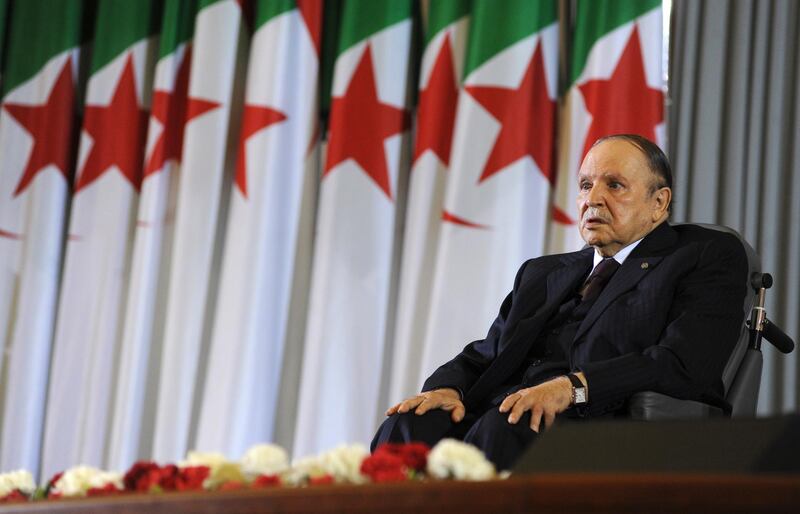Stepping aside now, following weeks of mass protests in Algeria, can be a dignified conclusion to the rule of Abdelaziz Bouteflika, and one that will, if handled well, ensure that he is remembered for his many positive achievements. A champion of Algerian independence, Mr Bouteflika helped heal his country after a grim civil war, made it a leader in the Arab world, acted decisively against international terrorism and has been a passionate advocate of the Palestinian cause. As the leaders of Egypt, Tunisia and Libya were toppled around him after 2011, Algeria remained a bastion of stability. But since he suffered a stroke in 2013, the 82-year-old Mr Bouteflika has become a symbol of stagnation in Algeria, where an ossified political system has failed to provide for ordinary Algerians. Today, unemployment is high, corruption is rife and the threat of extremism lingers. It is these legitimate grievances – rather than a distaste for Mr Bouteflika personally – that has propelled hundreds of thousands onto the streets in recent weeks. His decision to step aside is a rare and important gesture, but how the transition is handled will determine whether Algeria charts a bold new course, or descends into even greater instability.
Widespread jubilation followed Mr Bouteflika’s decision – outlined in a letter on Monday – to suspend April elections, not stand again and create “an inclusive and independent national conference” to debate Algeria’s future. But some voiced concerns that he had in effect lengthened his fourth term, which is set to expire next month. Many of those demanding change in Algeria’s opaque political sphere will react with anger if he rules throughout 2019, handing a victory to his powerful personal advisers rather than his people. Because Algerians are tired and frustrated, and the threat of real instability is looming. They deserve to have their grievances heard.
There is plenty of reason for optimism, even as mass protests have swept the nation. In a region where protests too quickly turn violent, the methods of demonstrators and security officers alike have been peaceful. But Algerians need real assurances that attempts to improve their lives are being made. After Mr Bouteflika’s promise of “deep reforms” during the transition period, they must not be let down again. As Mr Bouteflika said himself, it is necessary to “turn this crisis into a constructive process”, allowing Algerians to decide what kind of nation they want. After almost 20 years in power, it is this transition period that will secure Mr Bouteflika’s legacy. What is more, it could offer a template for the peaceful transfer of power. All who care about Algeria should play their part in ensuring that this process takes place peacefully, collaboratively and successfully.





